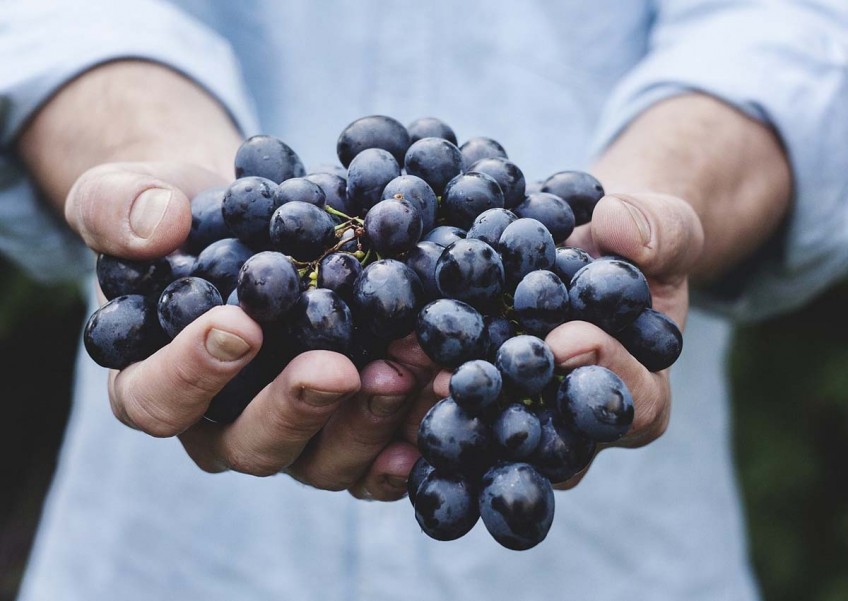Risks are serious when parents don't cut small fruits for children

Children under age 5 could choke on grapes and similarly-shaped foods, and parents should cut them in half or quarters to reduce the risk, Scottish doctors say.
Although some parents may know to cut food such as grapes, cherry tomatoes and hot dogs into smaller pieces, not all do. Public health officials should spread the message more, they wrote in the Archives of Disease in Childhood.
"This message continually appears but doesn't seem to take hold," said Jamie Cooper, study author and emergency medicine consultant at the Aberdeen Royal Infirmary in Scotland. "We've overseen a number of cases over the years where children have choked and died, and it's such a traumatic experience for the families."
In the United States, more than 2,100 children died from choking between 1999 and 2013, according to the American Academy of Pediatrics, and grapes were the third most common cause following hot dogs and candy.
Cooper and colleague Amy Lumsden documented three choking cases at the Royal Aberdeen Children's Hospital. In the first case, a 5-year-old boy choked on a whole grape during an afterschool programme. Staff at the programme and local ambulance crew tried to remove the grape by hitting the child on the back, using suction, and trying CPR. A paramedic joined the ambulance on the way to the hospital and performed a laryngoscopy to remove the grape. However, the child remained in cardiac arrest and died at the emergency room.
"We've realised among our own friends and families that nobody really seems to know to chop up small fruits or candies," Cooper told Reuters Health. "I've become the grape police at children's parties."
In a second case, a 17-month-old boy was eating a sandwich and grapes at home when he began choking. His parents rushed him to the local community hospital, where hospital staff struggled to dislodge the grape. A laryngoscopy was also required in this case to remove the grape, and the child was transferred to the Aberdeen hospital. He also died in the emergency room.
"We want to get across the message that parents should always supervise their children when eating and know basic first aid maneuvers," Cooper said. "Kids don't chew well, get easily distracted, and swallow."
In the third case, a 2-year-old boy snacked on grapes at the park with his family. When they noticed he was choking, they did the Heimlich manoeuvre but couldn't remove the grape. They rushed him to a home at the end of the park and called an ambulance. It arrived within minutes, and paramedics used laryngoscopy to remove the grape. On the way to the hospital, the boy had two seizures, and doctors in the emergency room noticed signs of brain and lung damage. They kept him on a ventilator in the intensive care unit for five days. Two days later, the child's brain scans came back normal, and he played at home normally days later.
"People don't realise that some common and popular foods have a particular choking hazard for small kids because they're the ideal size, shape and texture to firmly lodge at the top of the airway," said Stephen Feltbower, an emergency medicine consultant at Forth Valley Royal Hospital in Scotland. Feltbower, who wasn't involved with the study, has previously highlighted the danger of grapes as a choking hazard.
Cooper and Feltbower have suggested labeling foods such as grapes, cherry tomatoes and other smooth, spongy produce as choking hazards.
"We want to send a clear message that these foods are healthy and a great snack for children," Feltbower told Reuters Health. "However, they can pose a particular danger different from other snack foods, and parents should know that."
The US and European Union have regulations that prevent choking on toys and other children's products, but that's tougher to enforce with food, said Bob Altkorn, senior technical advisor of Intertek in Oak Brook, Illinois. Altkorn, who was not involved with this study, reported on fatal and non-fatal food injuries among children under age 14 in 2008.
In extreme cases, the Food and Drug Administration may issue alerts about certain foods. In 2011, for example, the FDA warned about the choking hazards associated with mini-gel cups, which are packaged as mouth-sized servings but don't melt or squish easily when put in the mouth.
"Unlike toys or children's products, it is not possible to eliminate foods that start out small or become small through chewing," Altkorn told Reuters Health by email. "Public awareness is one of the best options to mitigate against pediatric food choking."